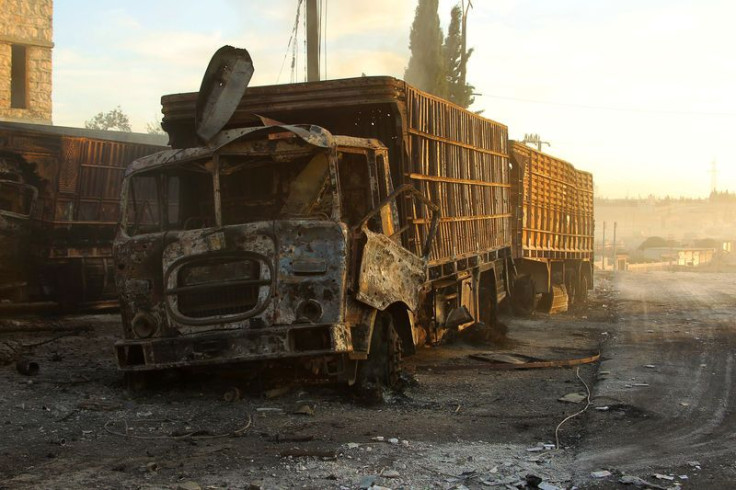US, Russia Fail To Agree On How To Revive Syria Ceasefire

The United States and Russia failed to agree on how to revive a short-lived ceasefire in Syria during what the U.N. Syria mediator called a "long, painful, difficult and disappointing" meeting on Thursday.
The International Syria Support Group, including the U.S., Russia and other major powers, met on the sidelines of the annual United Nations gathering of world leaders in New York as the Syrian army announced the start of a new military offensive in the rebel-held east of the city of Aleppo.
"We have exchanged ideas with the Russians and we plan to consult tomorrow with respect to those ideas," U.S. Secretary of State John Kerry said, expressing concern at the reports of the planned new Syrian offensive.
"I am no less determined today than I was yesterday but I am even more frustrated," said Kerry.
Russia and the United States agreed on Sept. 9 a deal aimed at putting Syria's peace process back on track. It included a nationwide truce, improved humanitarian aid access and the possibility of joint military operations against al-Qaeda-linked groups and the banned Islamist groups.
However, the truce effectively collapsed after a week when an aid convoy was bombed on Monday, killing some 20 people.
"The good news is that Russia and the U.S. agreed to work intensely on a possible restoration of it," U.N. Syria mediator Staffan de Mistura told reporters. "It was a long, painful, difficult and disappointing meeting."
"Meanwhile ... everyone is going back to the conflict. The next few hours, days maximum are crucial for making it or breaking it," de Mistura said.
Kerry demanded on Wednesday that Russia and the Syrian government immediately halt flights over Syrian battle zones.
"We have not succeeded so far, but there was a lot of support around the table for the proposal, a temporary ban for all flights in order to create the conditions for the truce," German Foreign Minister Frank-Walter Steinmeier said.
French Foreign Minister Jean-Marc Ayrault described Russian Foreign Minister Sergei Lavrov's response to the proposal for grounding planes as "not satisfying." He described the meeting as "intense."
"The offensive on Aleppo just shows why we need Syrian planes grounded, otherwise there will be no truce," Ayrault said.
Lavrov said the Syrian opposition needed to take steps toward a compromise. Kerry said the United States and allies who supported opposition groups were prepared to reciprocate but only if Russia showed it was serious about implementing the ceasefire agreement.
A senior U.S. State Department official, speaking on condition of anonymity, told reporters: "The ball is very much in the Russians' court to come back to us with some ideas that are serious, that would be above and beyond the types of things they have been willing to agree to in the past with regard to air activities over large parts of Syria."
When asked what would happen next if the process completely collapsed, the official said it was something the United States was "giving a lot of thought to."
"I don't think tonight and right now as we are approaching a climactic stage is a time to say where we will go from here," the official added.
© Copyright Thomson Reuters 2024. All rights reserved.





















